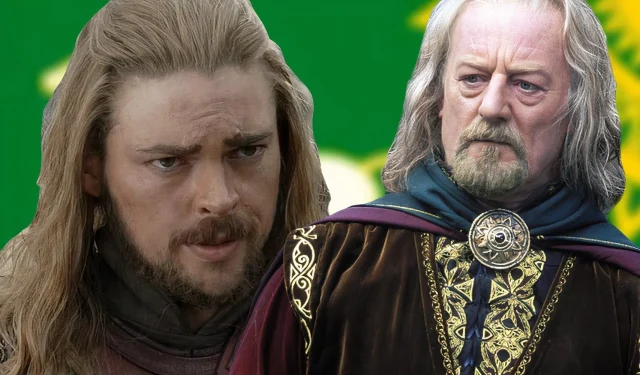
The cinematic portrayal of Rohan in the Lord of the Rings series gains significant prominence in the second installment, The Lord of the Rings: The Two Towers. By the conclusion of this chapter, Rohan stands tall as a formidable alliance, particularly with Gondor during the tumultuous era of the War of the Ring.
As we look forward to more films in the Lord of the Rings franchise, the upcoming release, War of the Rohirrim, is set to explore the rich tapestry of Rohan’s history. This film is uniquely positioned centuries before the events of The Lord of the Rings, focusing on one of Rohan’s iconic kings and unveiling the intricate lore that shaped this nation of horsemen. This narrative reignites interest in the line of kings who led Rohan through the ages, enhancing our understanding of their legacy in Middle-earth.
19 Eorl the Young
Ruled Between TA 2510 – TA 2545
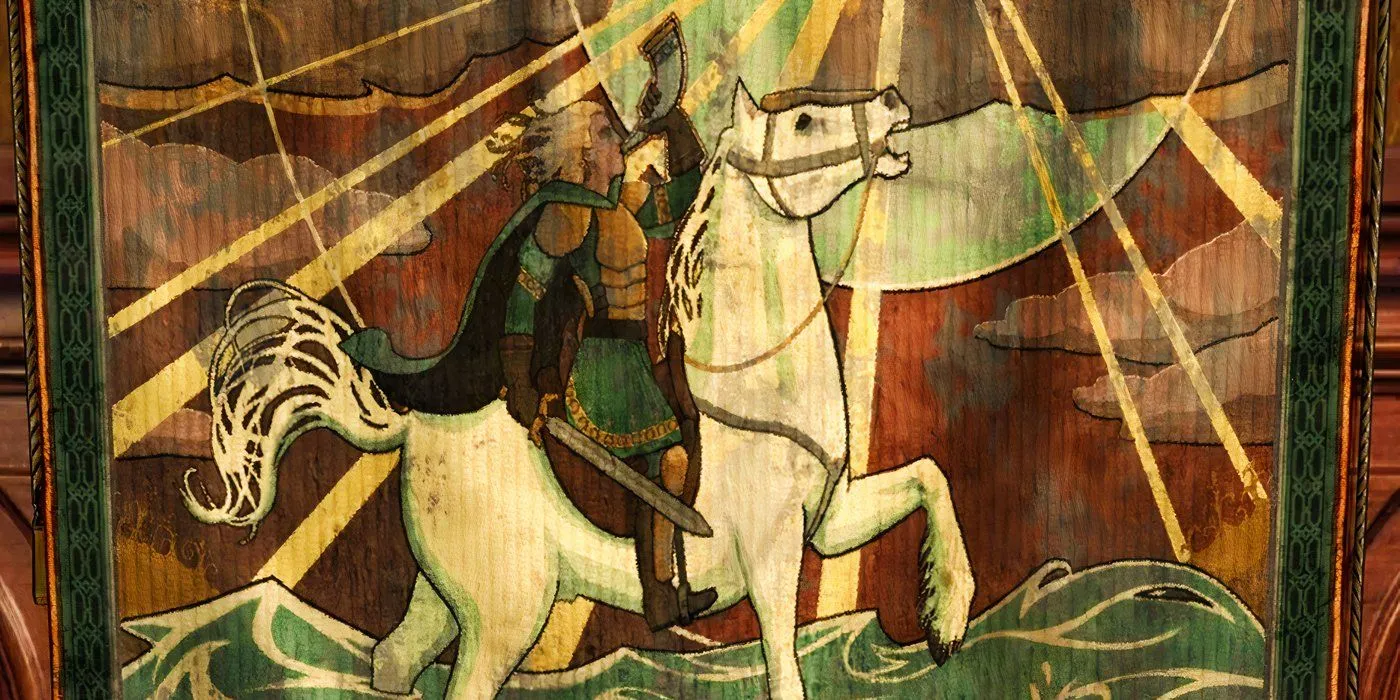
Eorl the Young, the inaugural king of Rohan, emerged from the Éothéod—a people who resided in the northern regions of Middle-earth, under the Gray Mountains. As their population swelled, Eorl received a plea for assistance from Gondor, requesting aid against the invading forces from Rhûn.
Introducing a novel tradition, Eorl tamed a horse named Mansbane, a creature that had brought tragedy upon his family. This pivotal moment cemented the cultural significance of horses within Rohan’s identity. Eorl and his contingent of 7,000 horsemen triumphed at the Battle of the Field of Celebrant, leading to his reward of the expansive lands of Calenardhon—later designated as Rohan by Gondor. Thus, Eorl established himself and the House of Eorl, marking the beginning of a storied alliance among the kingdoms of Men.
18 Brego
Ruled Between TA 2545 – TA 2570
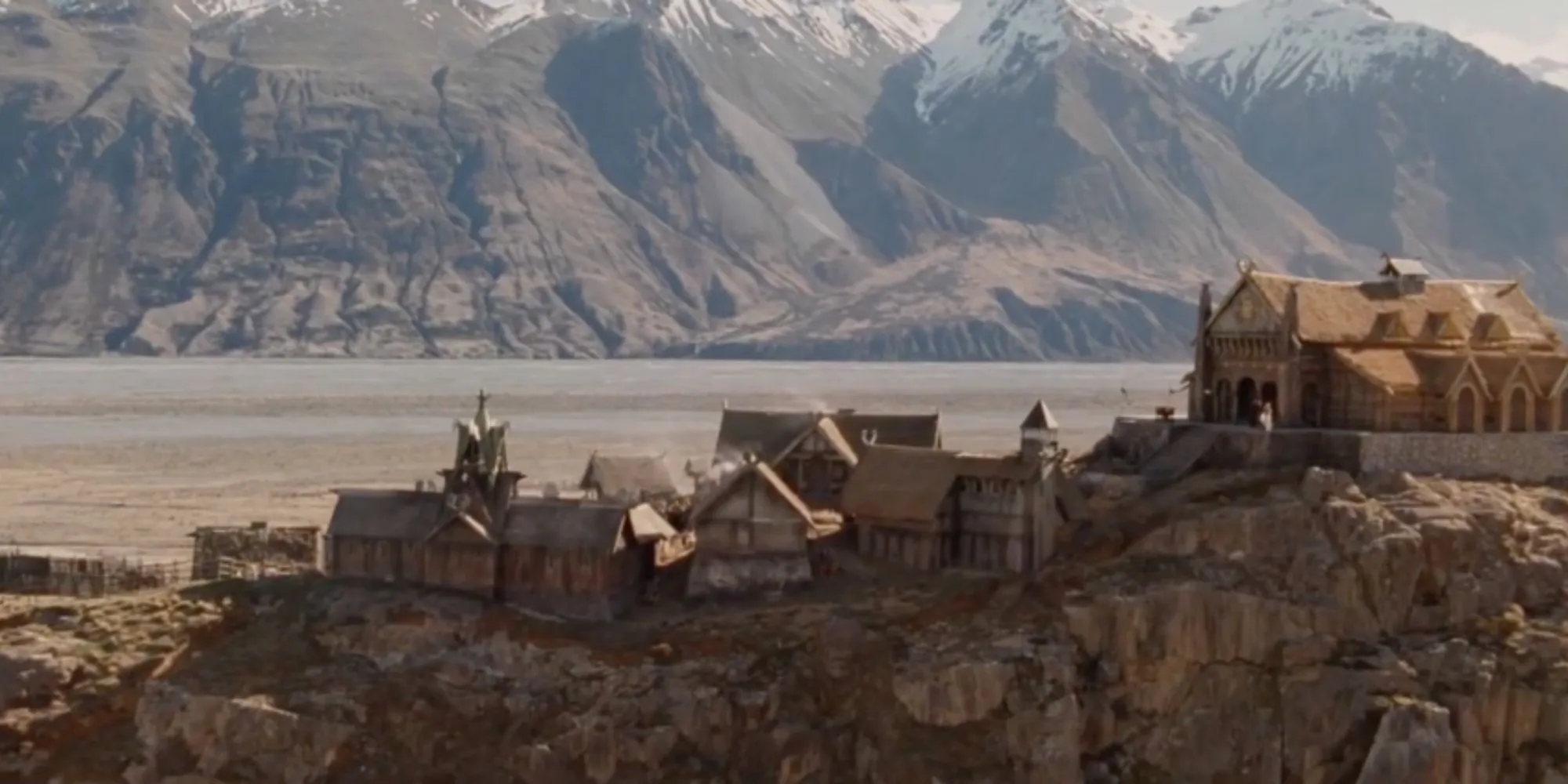
Brego, the firstborn son of Eorl, ascended the throne during a predominantly peaceful era. Under his leadership, Edoras became the capital of Rohan and the prestigious Golden Hall was erected, symbolizing Rohan’s growing significance. However, personal strife struck Brego when he lost his eldest son, Baldor, which ultimately drained his will to continue ruling, thus passing the crown to his second son, Aldor.
17 Aldor
Ruled Between TA 2570 – TA 2645
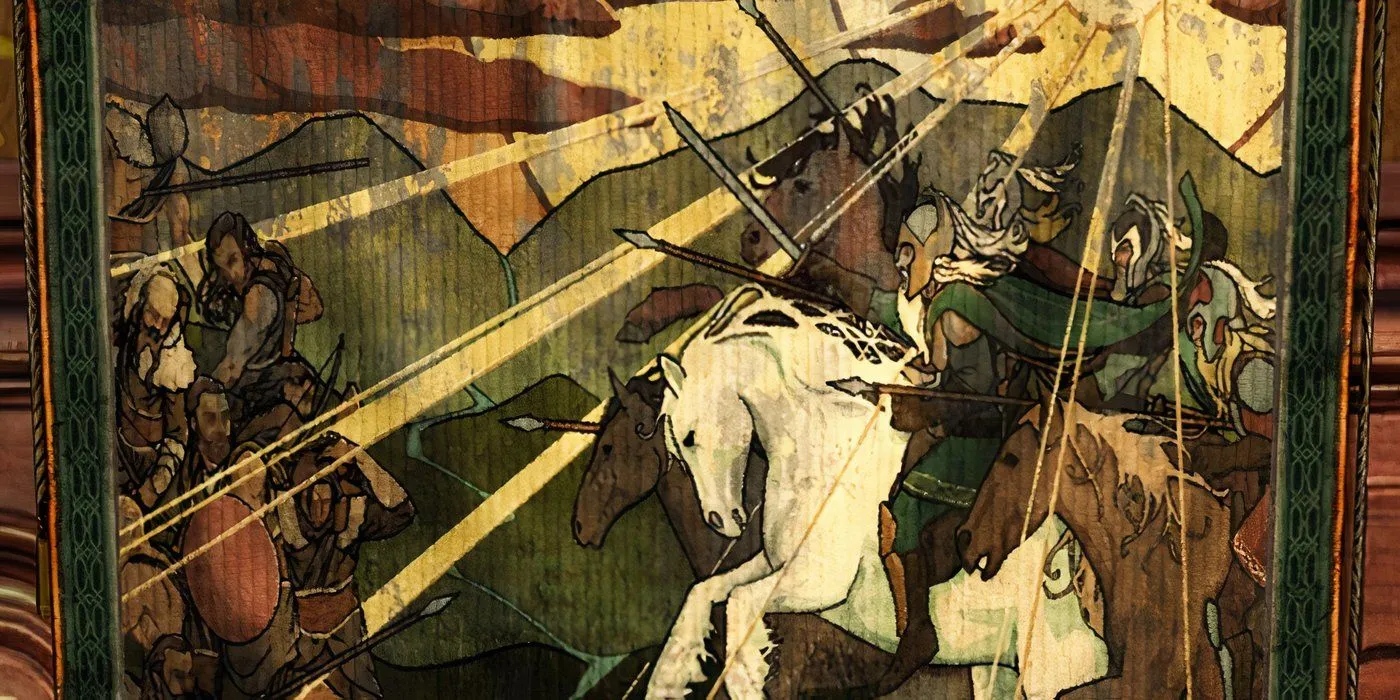
Aldor, known as “the Old,”ruled for an impressive 75 years, the longest reign in Rohan’s annals. His time on the throne brought minor conflicts with the Dunlendings, which ultimately allowed Rohan to extend its territories and boost its population, thus fortifying the legendary Rohirrim.
16 Frea
Ruled Between TA 2645 – TA 2659
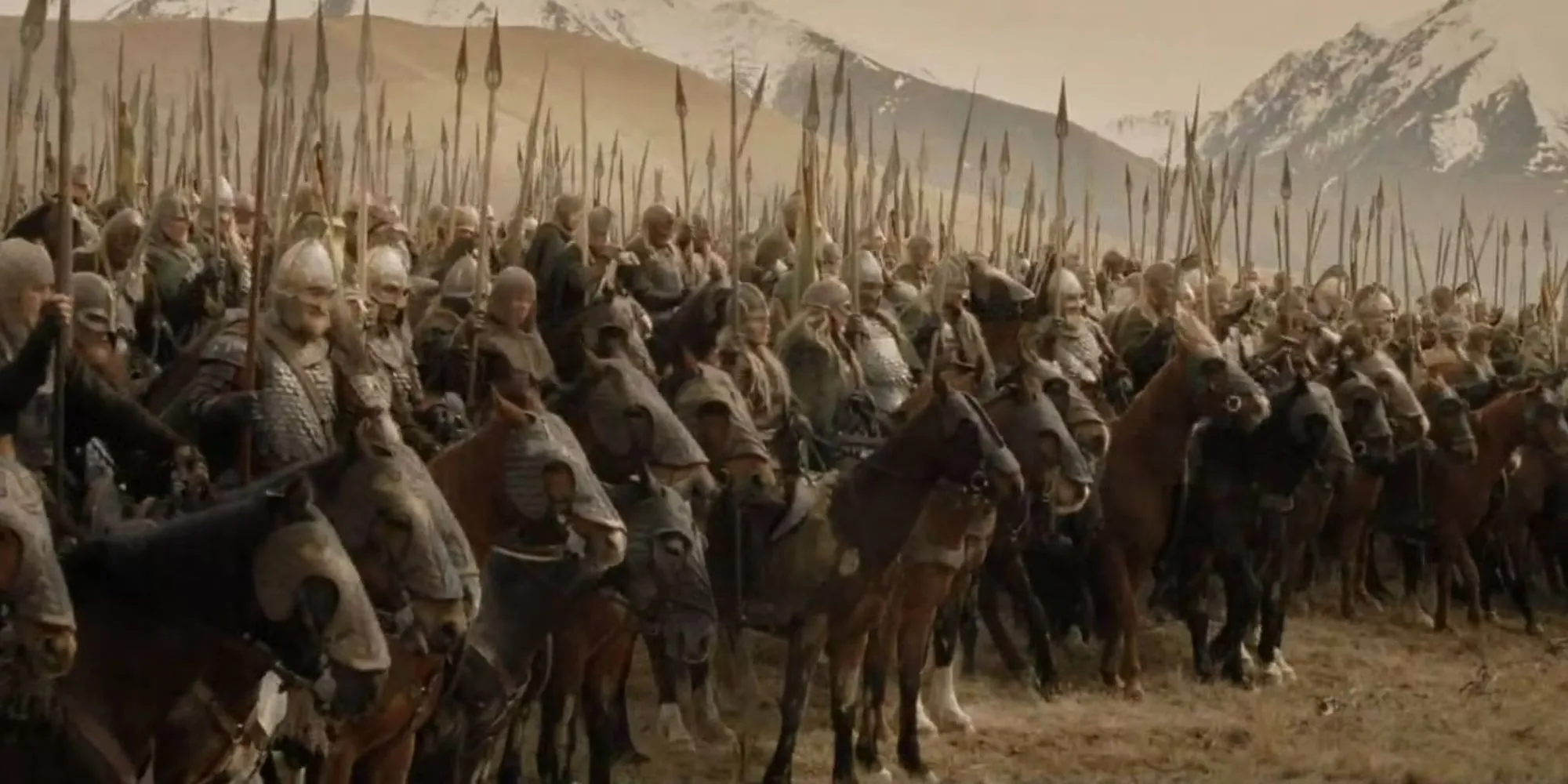
Fréa, who became king at an advanced age, experienced a brief reign of only 14 years, which paralleled the era of peace established by his predecessors. His lack of significant events created a solid foundation for his son, Fréawine, who succeeded him amid the flourishing might of the Rohirrim.
15 Fréawine
Ruled Between TA 2659 – TA 2680
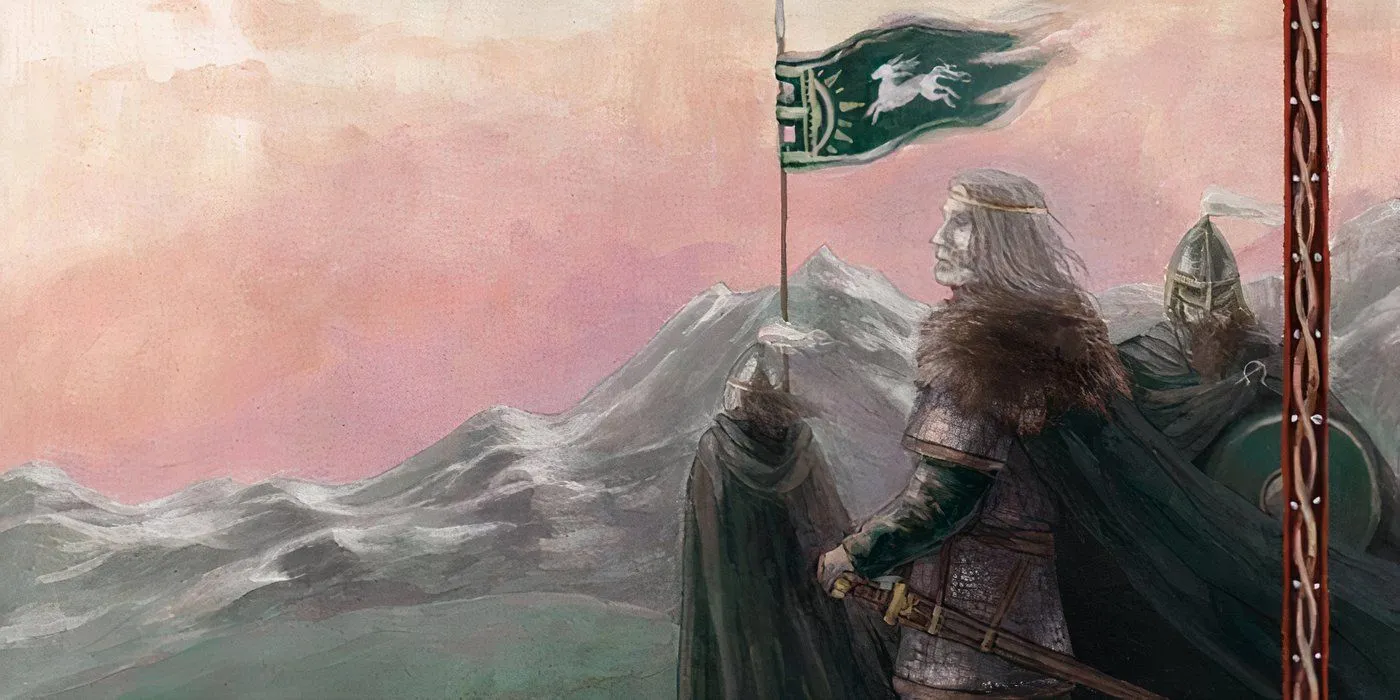
As the fifth king, Fréawine inherited a peaceful reign reminiscent of those before him, leading Rohan for just over two decades. He was already a grandfather when he took the crown, which eventually passed on to his lineage.
14 Goldwine
Ruled Between TA 2680 – TA 2699
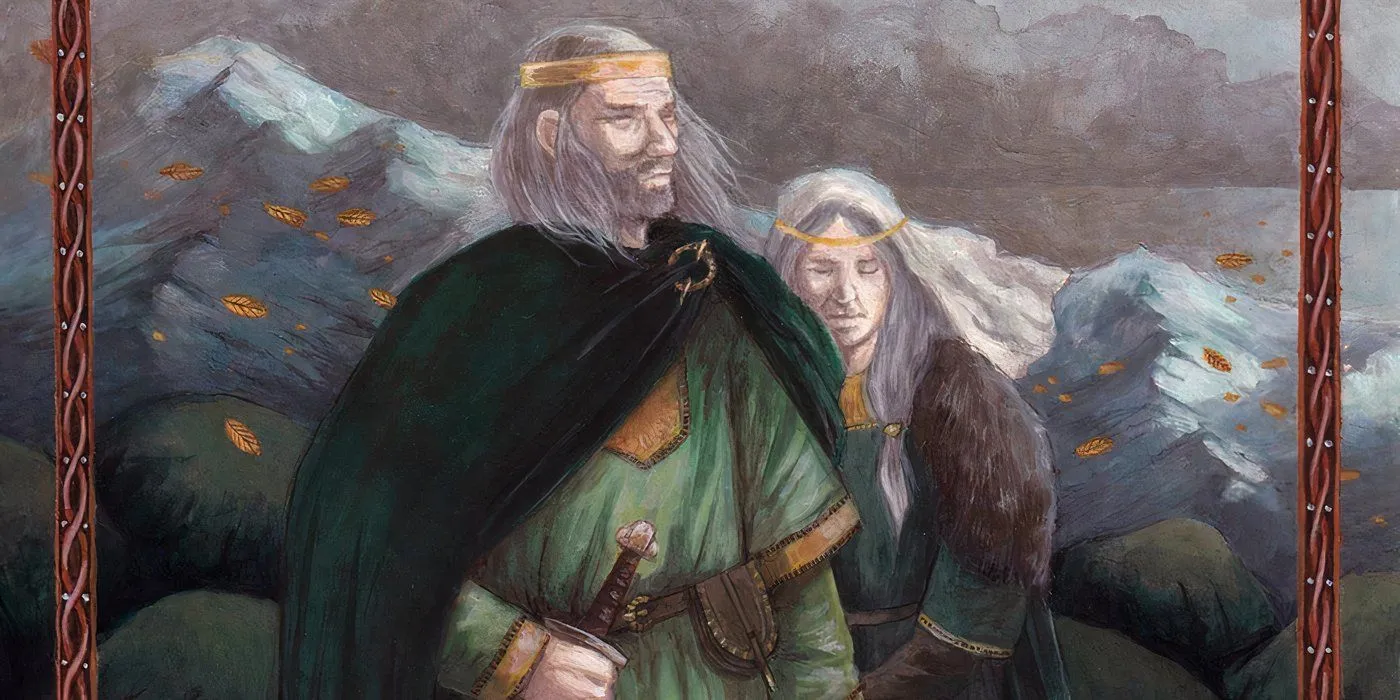
Goldwine, ruling in the absence of hostility, continued the legacy of peace that had characterized Rohan over the previous generations. His reign resonated with wealth, a testament to the prosperity enjoyed by the realm.
13 Déor
Ruled Between TA 2699 – TA 2718
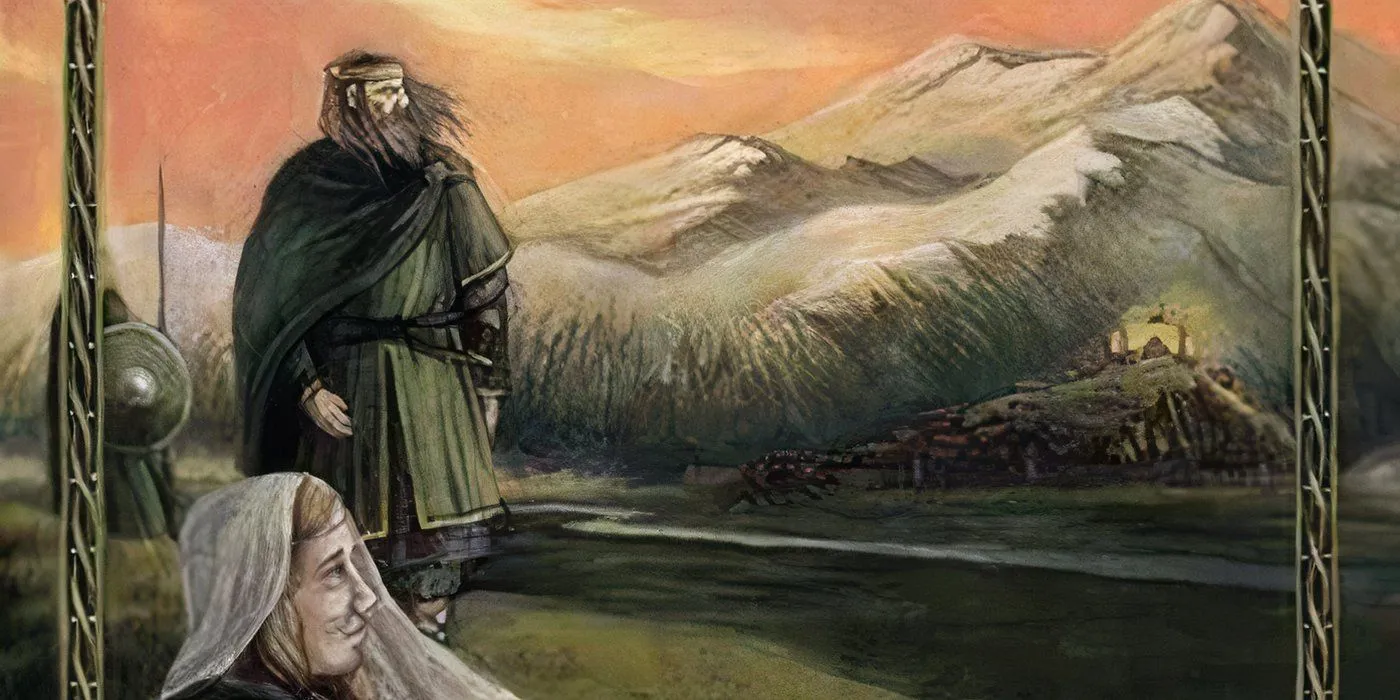
As Déor took the mantle of leadership at 55, he did so during a time when Rohan faced challenges from the Dunlendings—a threat that had resurfaced. Tragically, Déor died in 2718, grappling with the relentless skirmishes transpiring in Rohan.
12 Gram
Ruled Between TA 2718 – TA 2741
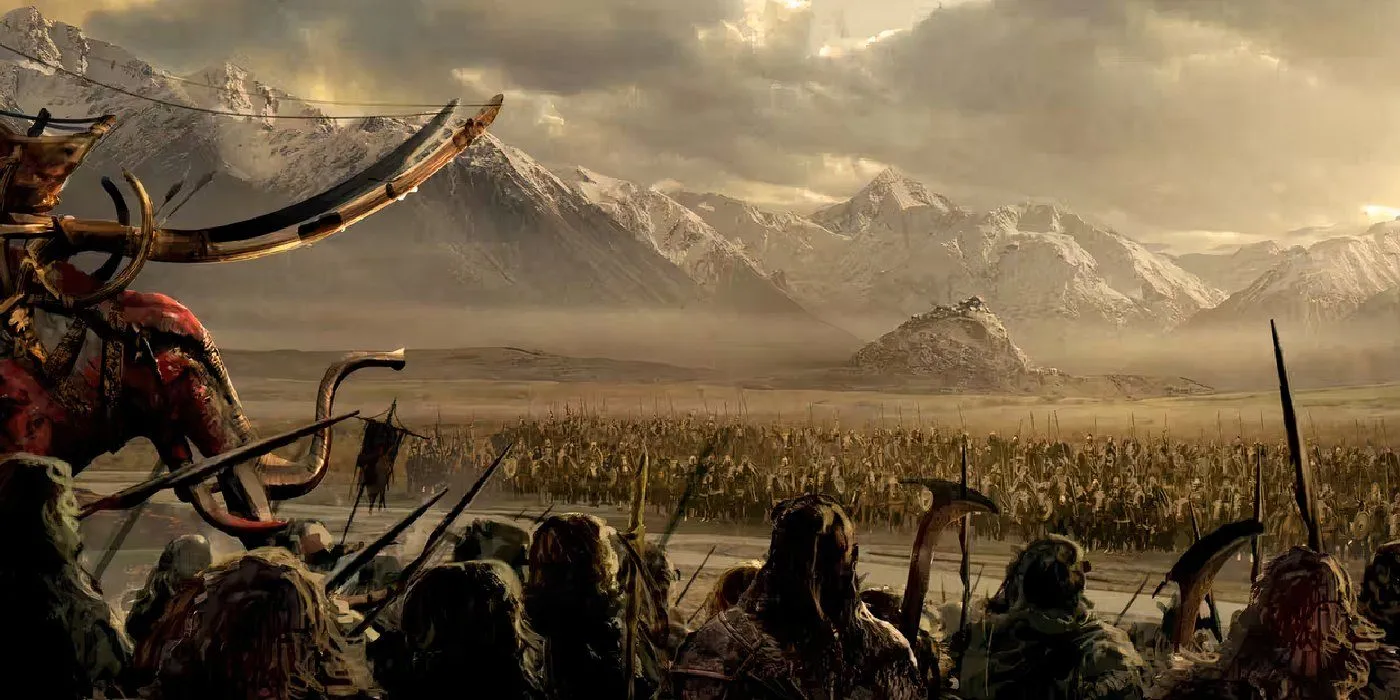
The chaos initiated during Déor’s kingship persisted with Gram facing persistent conflicts against the Dunlendings. His rule was marked by a series of intense battles, culminating in continued struggles that carried into the reign of his son, Helm Hammerhand.
11 Helm Hammerhand
Ruled Between TA 2741 – TA 2759
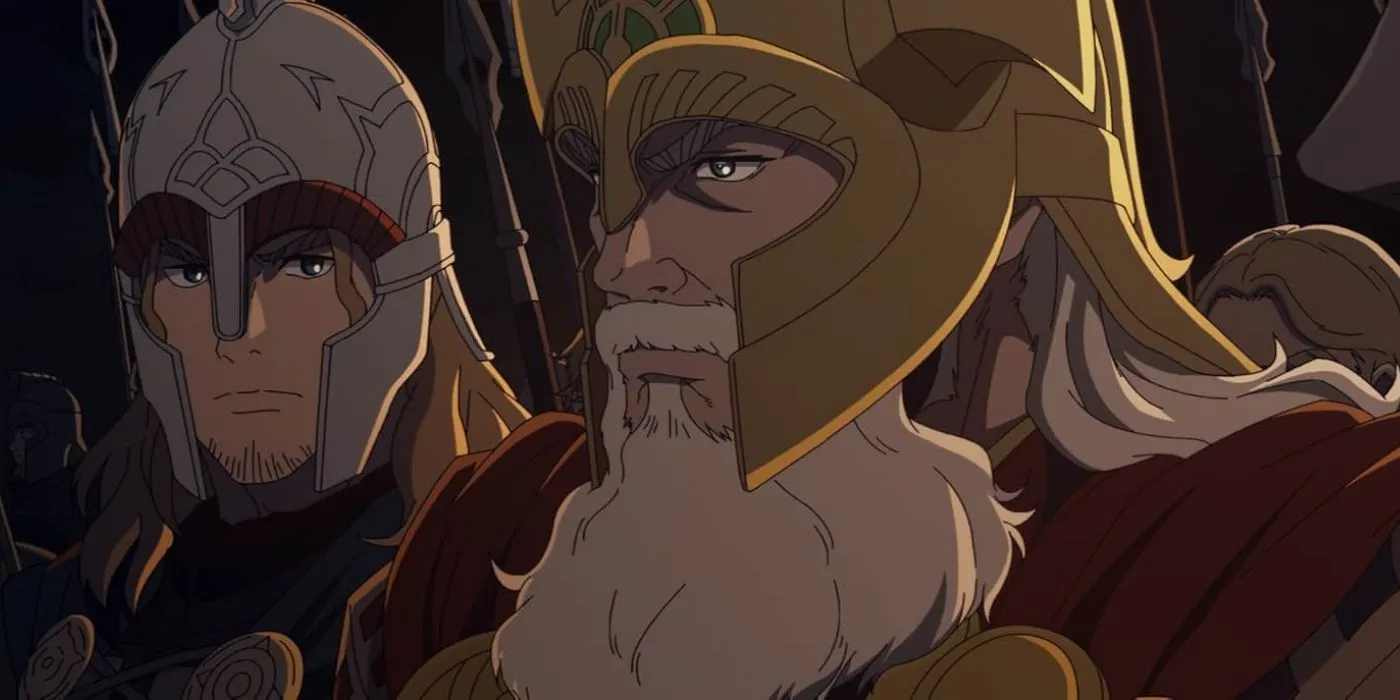
Helm Hammerhand, a king renowned for his valor, continued the dynastic conflict against the Dunlendings. A pivotal incident emerged when he unwittingly killed Freca during a dispute, igniting the wrath of Freca’s son, Wulf, who rallied the Dunlendings against Rohan. Helm’s leadership during the protracted siege of Otterford, and later at the Hornburg, marked a significant phase in Rohan’s history, culminating in his legendary status.
10 Fréaláf Hildeson
Ruled Between TA 2759 – TA 2798
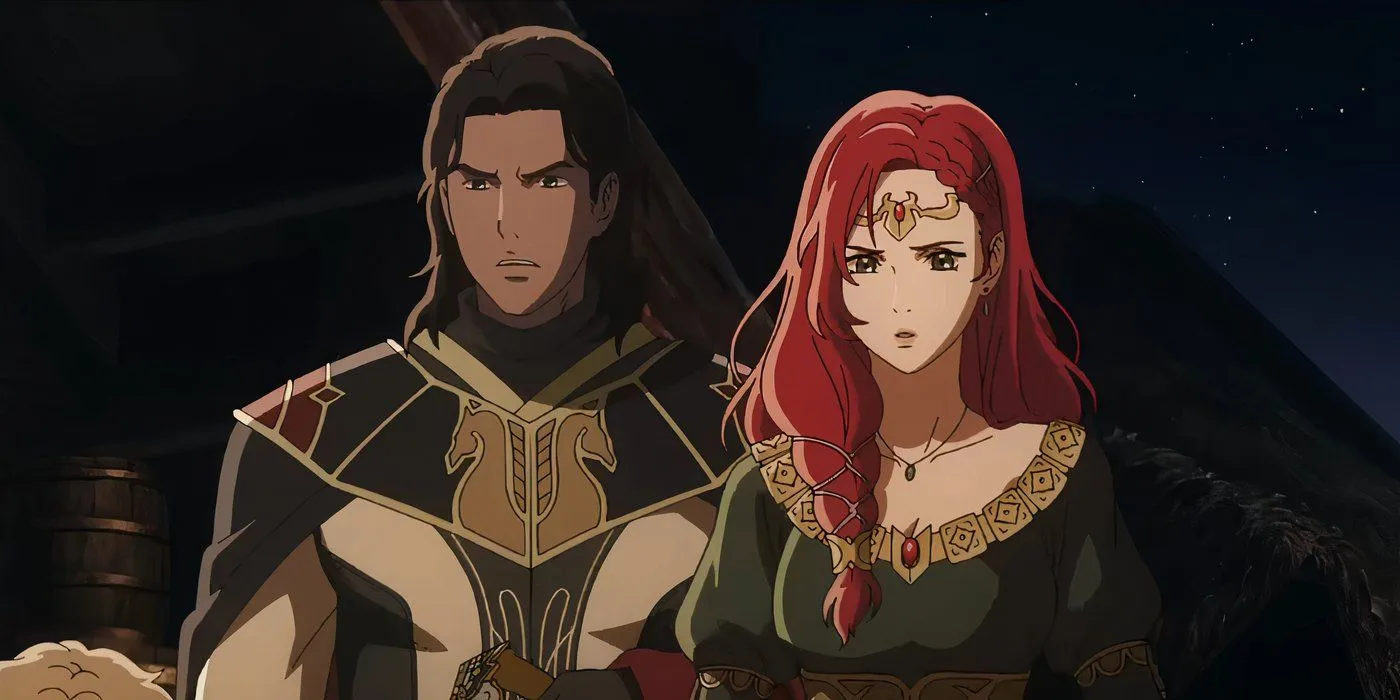
Following Helm’s death, Fréaláf emerged as a key figure in repelling Wulf’s forces. His leadership not only restored Rohan’s stability but also solidified alliances with influential figures like Gandalf, which were crucial for the realm’s resurgence.
9 Brytta Léofa
Ruled Between TA 2798 – TA 2842
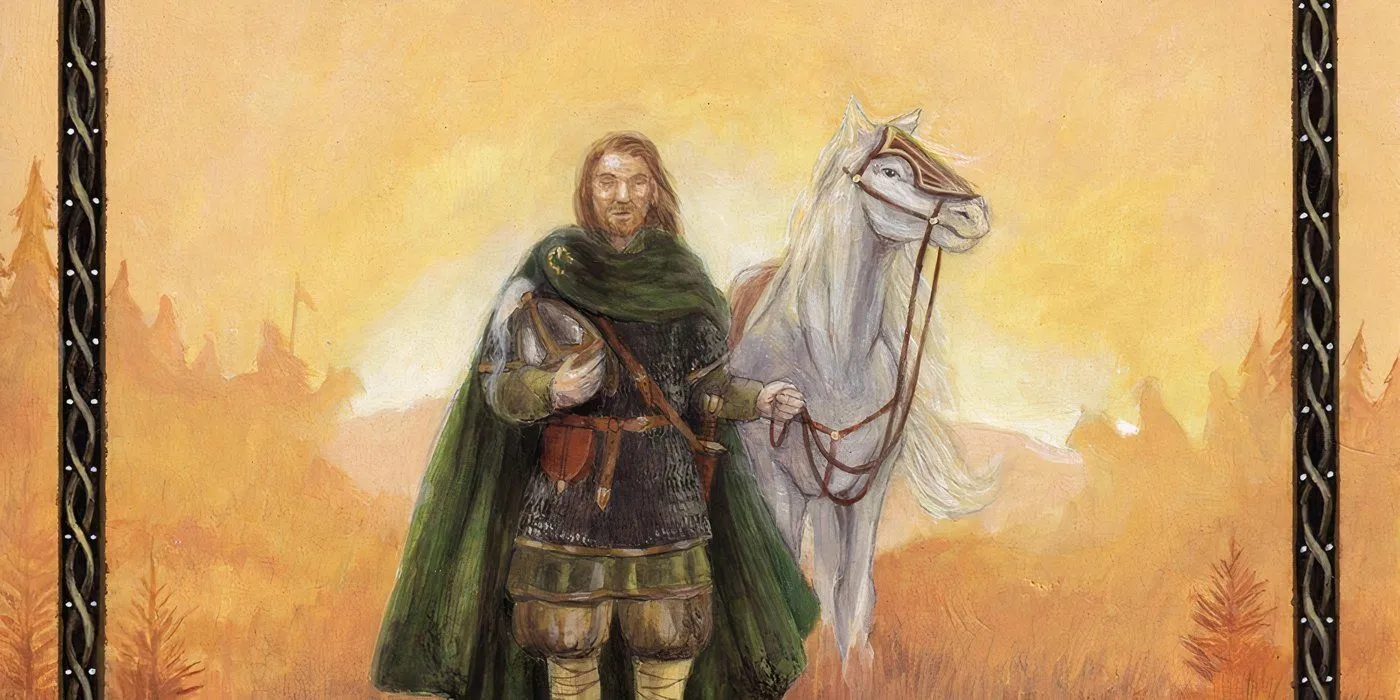
Brytta, Fréaláf’s son, faced the tumultuous task of mending Rohan post-conflict. His skillful leadership ushered in an era of peace, earning him the affectionate title Léofa, meaning “beloved.”However, he grappled with the repercussions from skirmishes between the dwarves and orcs, organizing defenses and ultimately securing Rohan’s borders.
8 Welding
Ruled Between TA 2842 – TA 2851
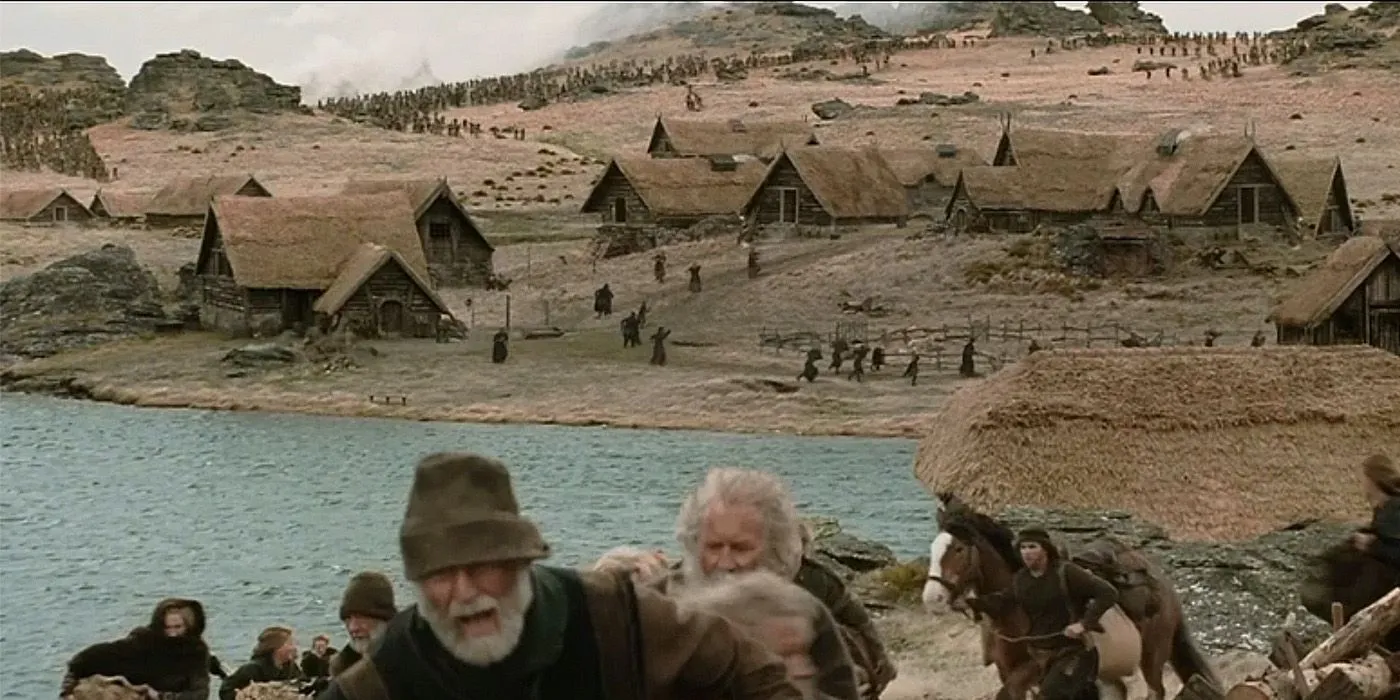
Walda’s reign, albeit brief, was marred by tragedy. Although he succeeded to the throne relatively peacefully, lurking orc threats resurfaced, leading to his assassination. His death precipitated a power shift, leaving Rohan vulnerable.
7 Folk
Ruled Between TA 2851 – TA 2864
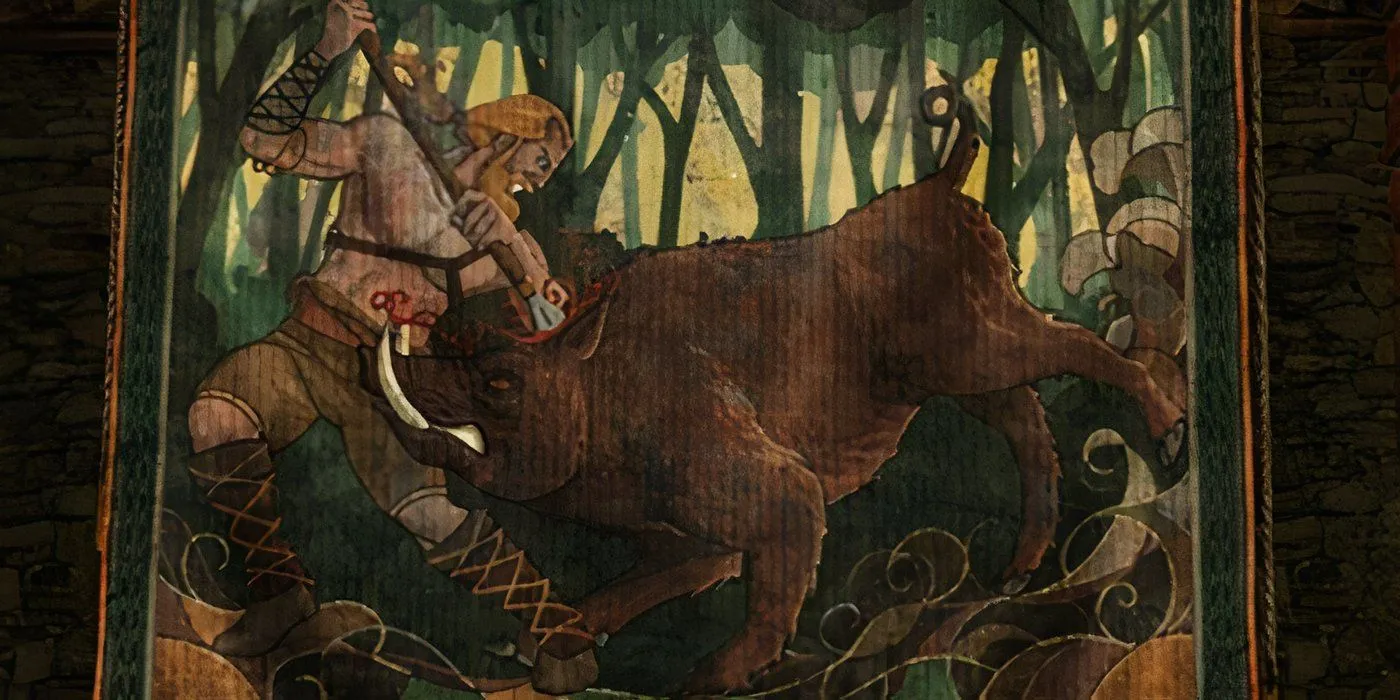
In the wake of Walda, Folca vowed retribution against the orc scourge. His determined campaign ultimately eliminated orc presence within Rohan, albeit at a grave cost—his life followed soon after due to injuries sustained during his final hunt.
6 Folcwine
Ruled Between TA 2864 – TA 2903
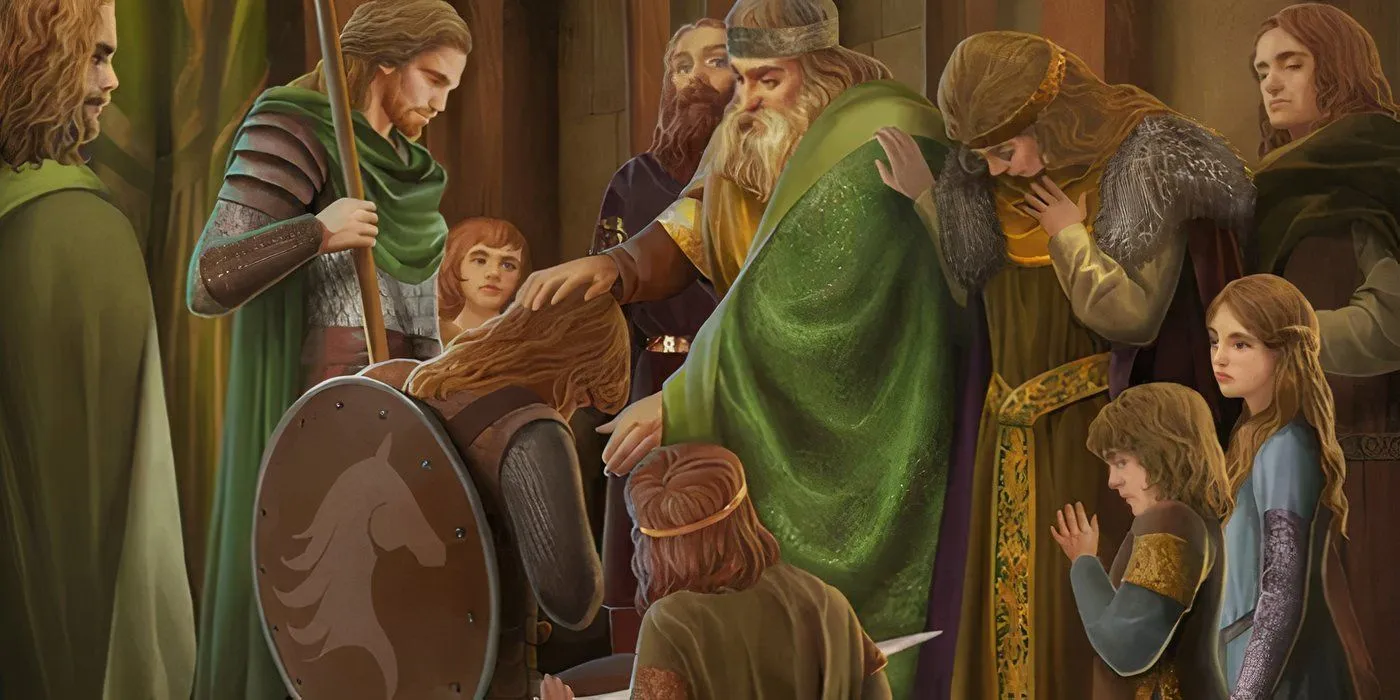
Folcwine’s rule commenced with relative peace, yet his reign was notably altered by external threats from the Haradrim. Despite his desire to head to battle against Gondor’s adversaries, he sent his sons instead—unfortunately, both fell in the ensuing conflict.
5 Fengel
Ruled Between TA 2903 – TA 2953
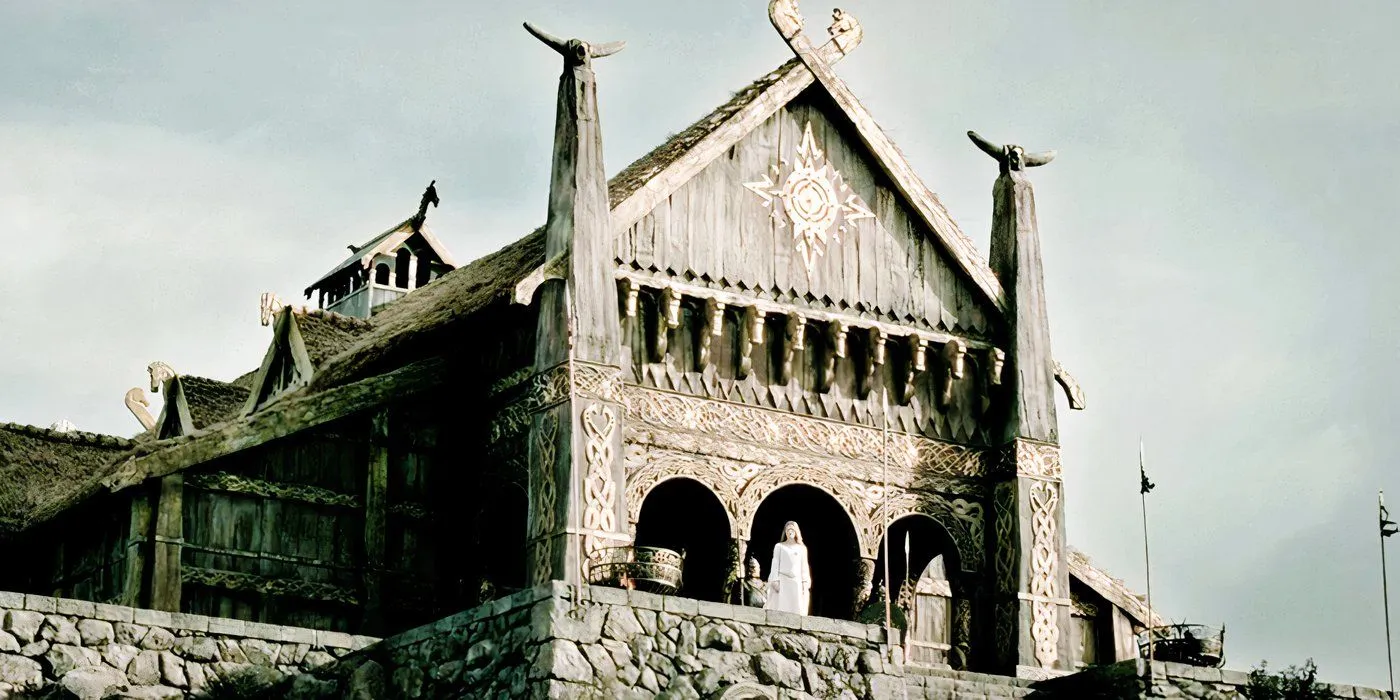
Fengel’s character overshadowed his tenure as king. Clashes with leaders in Rohan were common, leading to internal discord. His personality drove his son Thengel away, but Fengel’s long reign came to a close in 2953, requiring Thengel’s reluctant return to Rohan.
4 Thengel
Ruled Between TA 2953 – TA 2980
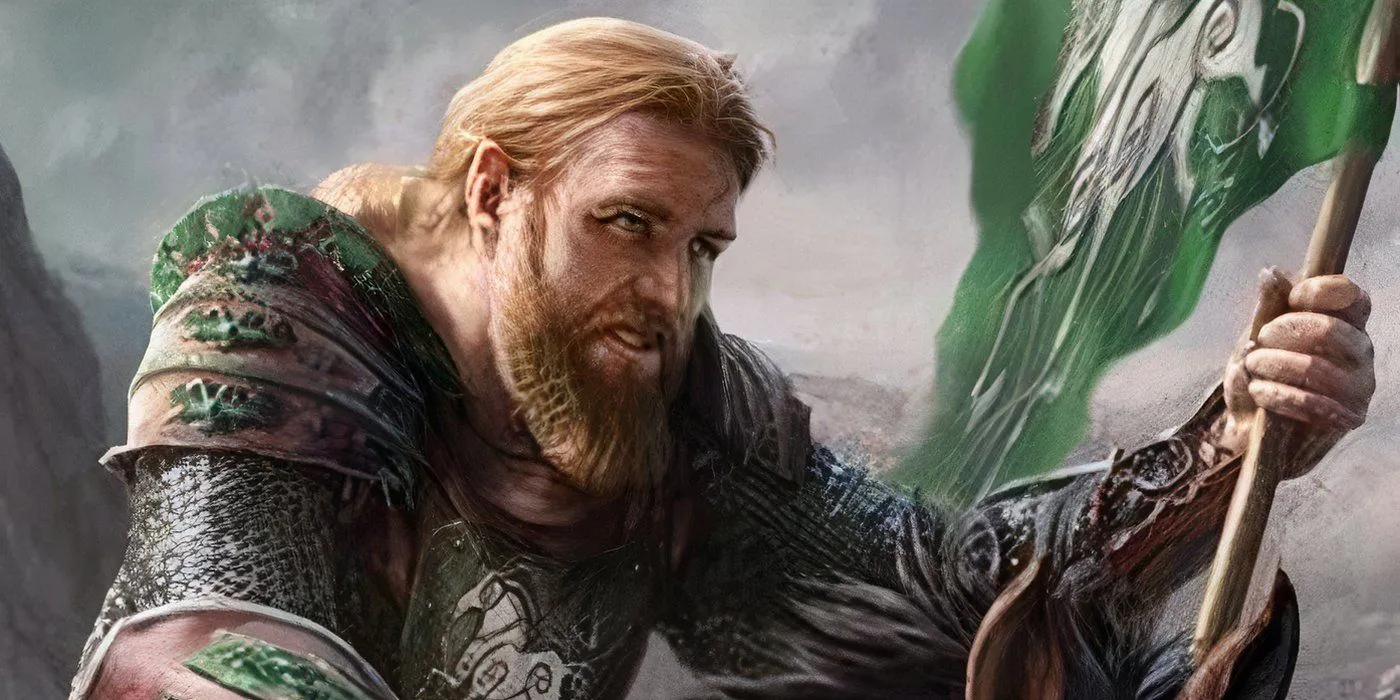
Thengel’s administration marked a return to stability, though he contended with external threats orchestrated by Saruman. His marriage to Morwen further entwined the fates of Rohan and Gondor, manifesting in the legacy of his children, notably Théoden.
3 Theoden
Ruled Between TA 2980 – TA 3019
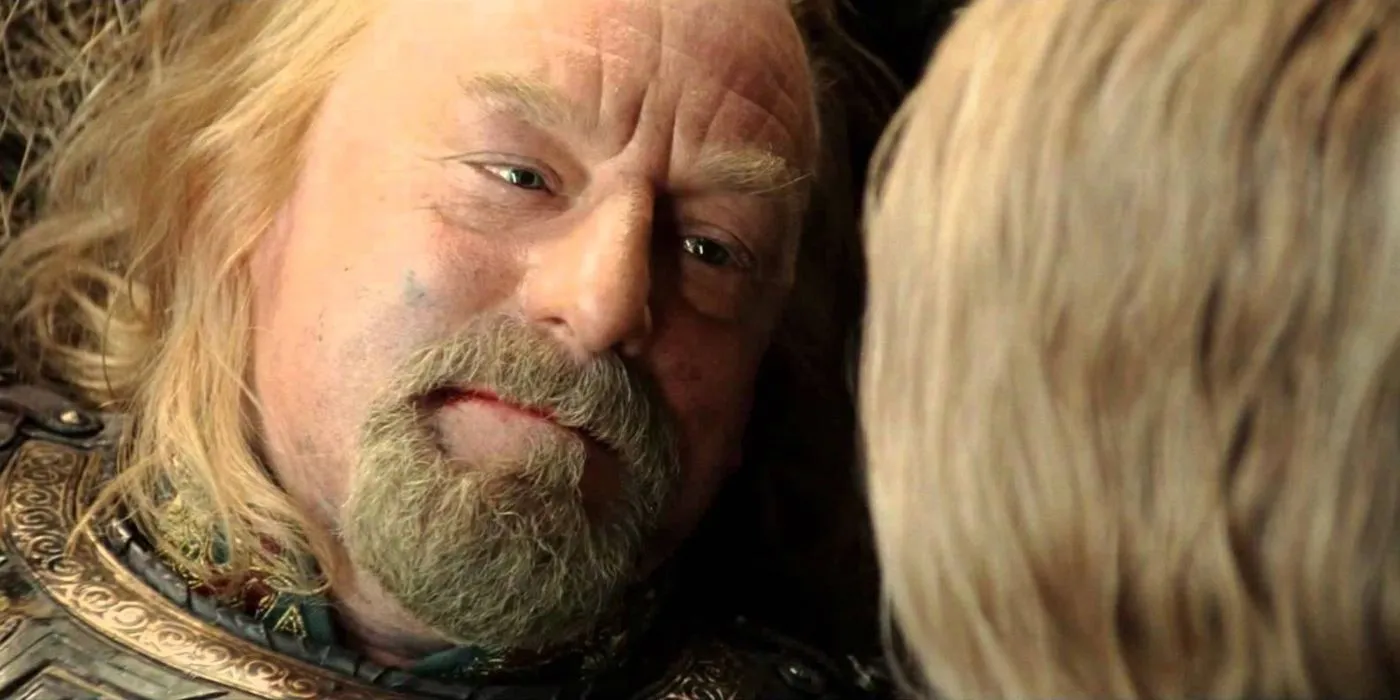
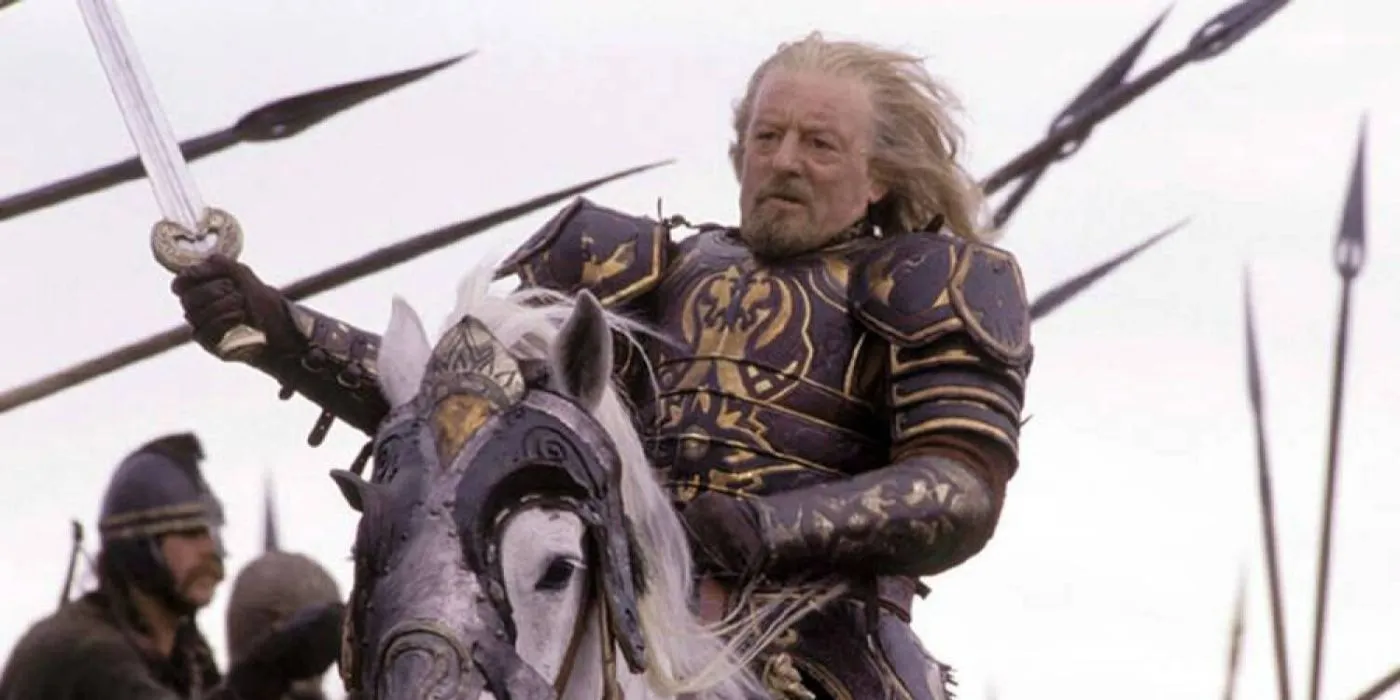
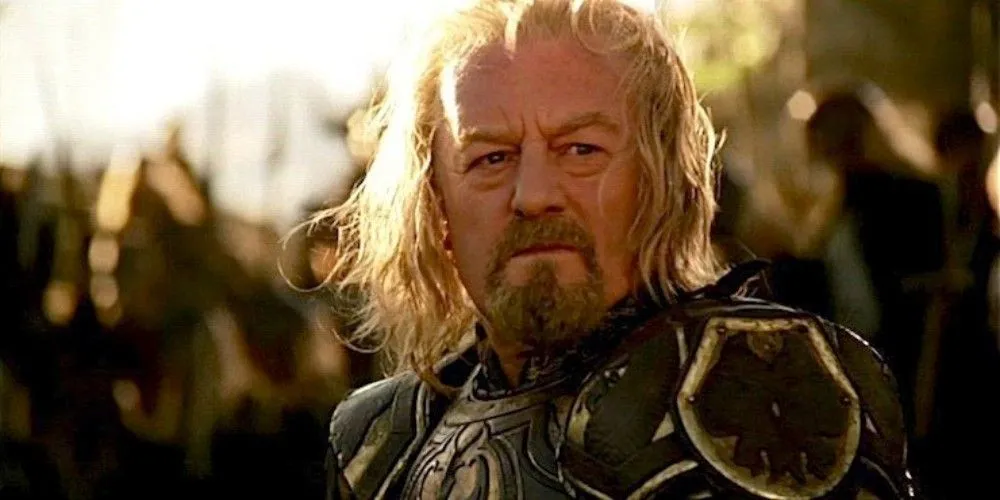
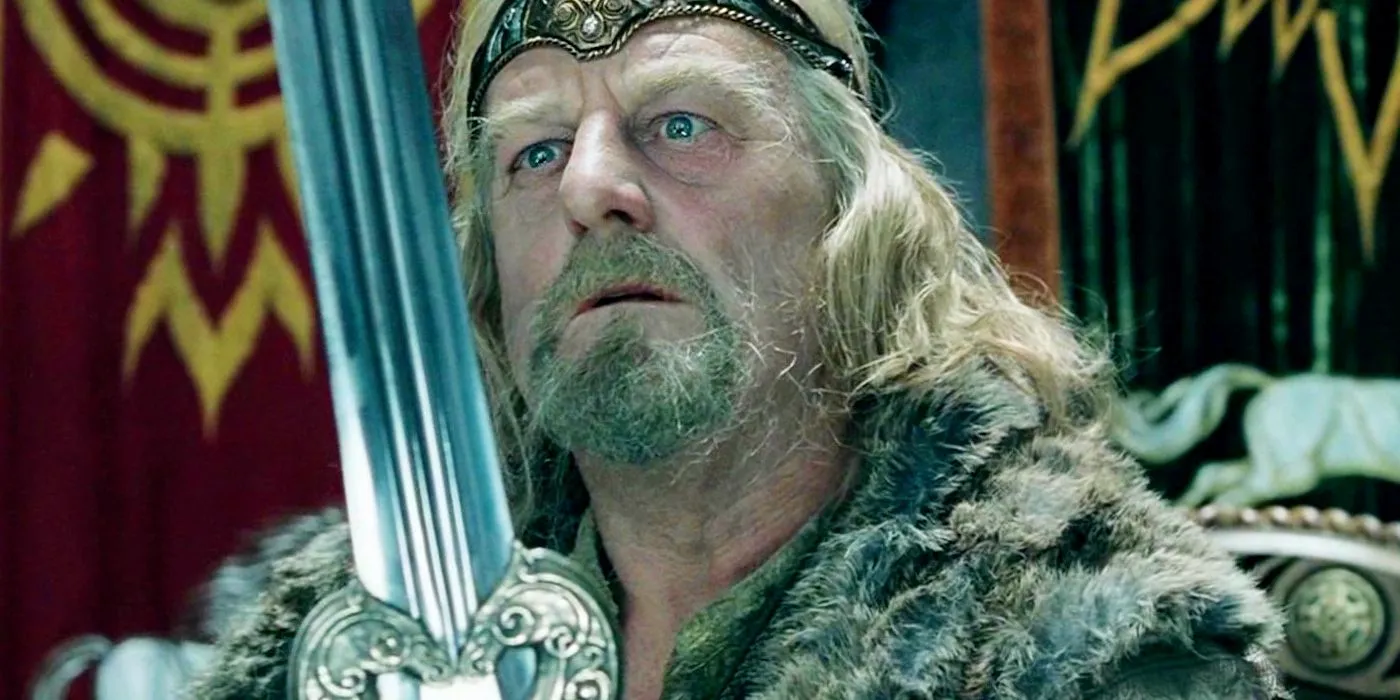
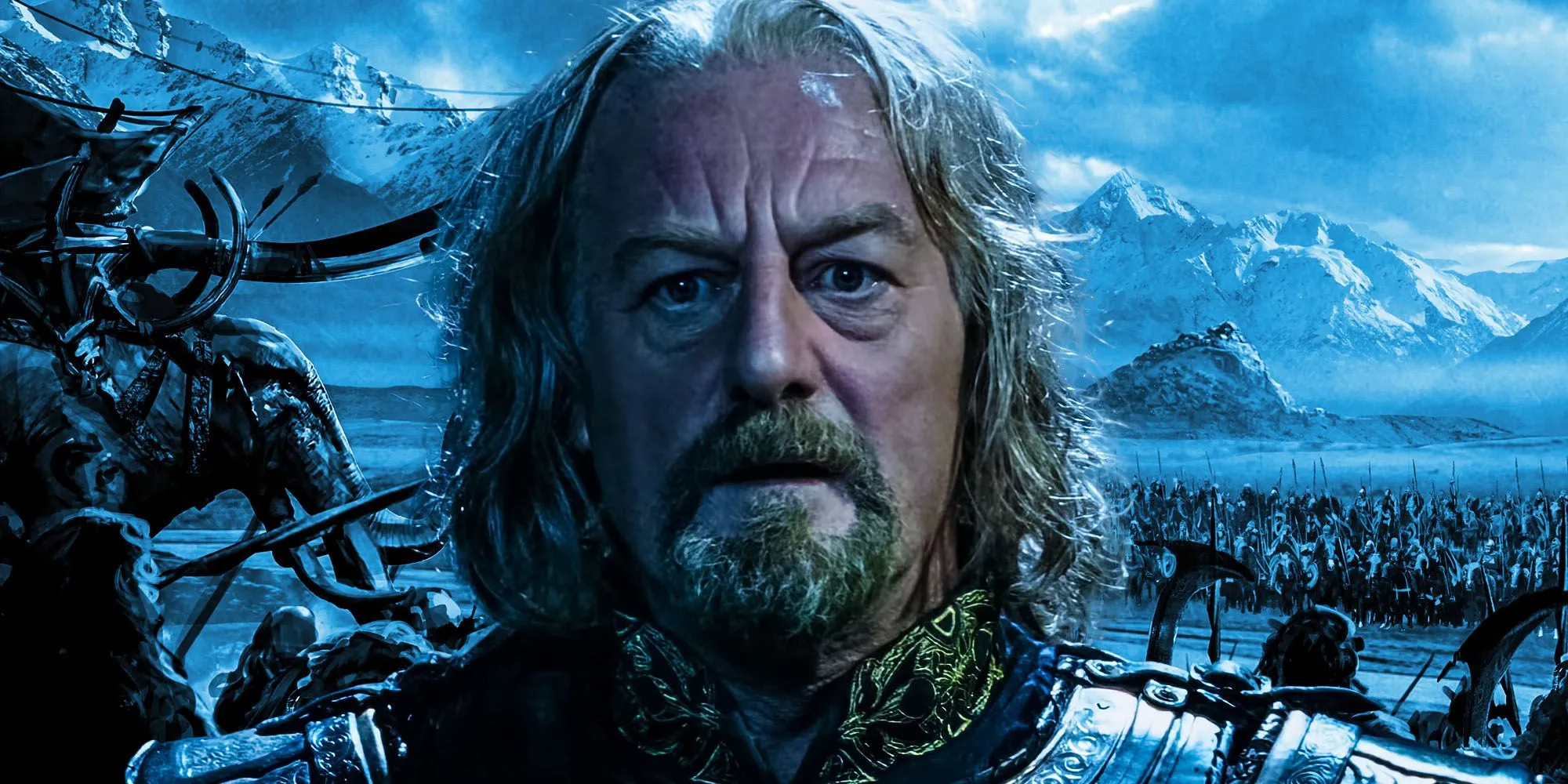
Théoden’s legacy is intricately connected to the War of the Ring, solidifying his reputation as Rohan’s most legendary monarch. His reign was characterized by the malevolent influence of Grima Wormtongue, an agent of Saruman. Still, Théoden emerged as a key military leader, orchestrating vital defenses during the siege of Helm’s Deep and participating actively in the Battle of the Pelennor Fields until his tragic death.
2 Éomer
Ruled Between TA 3019 – FA 63
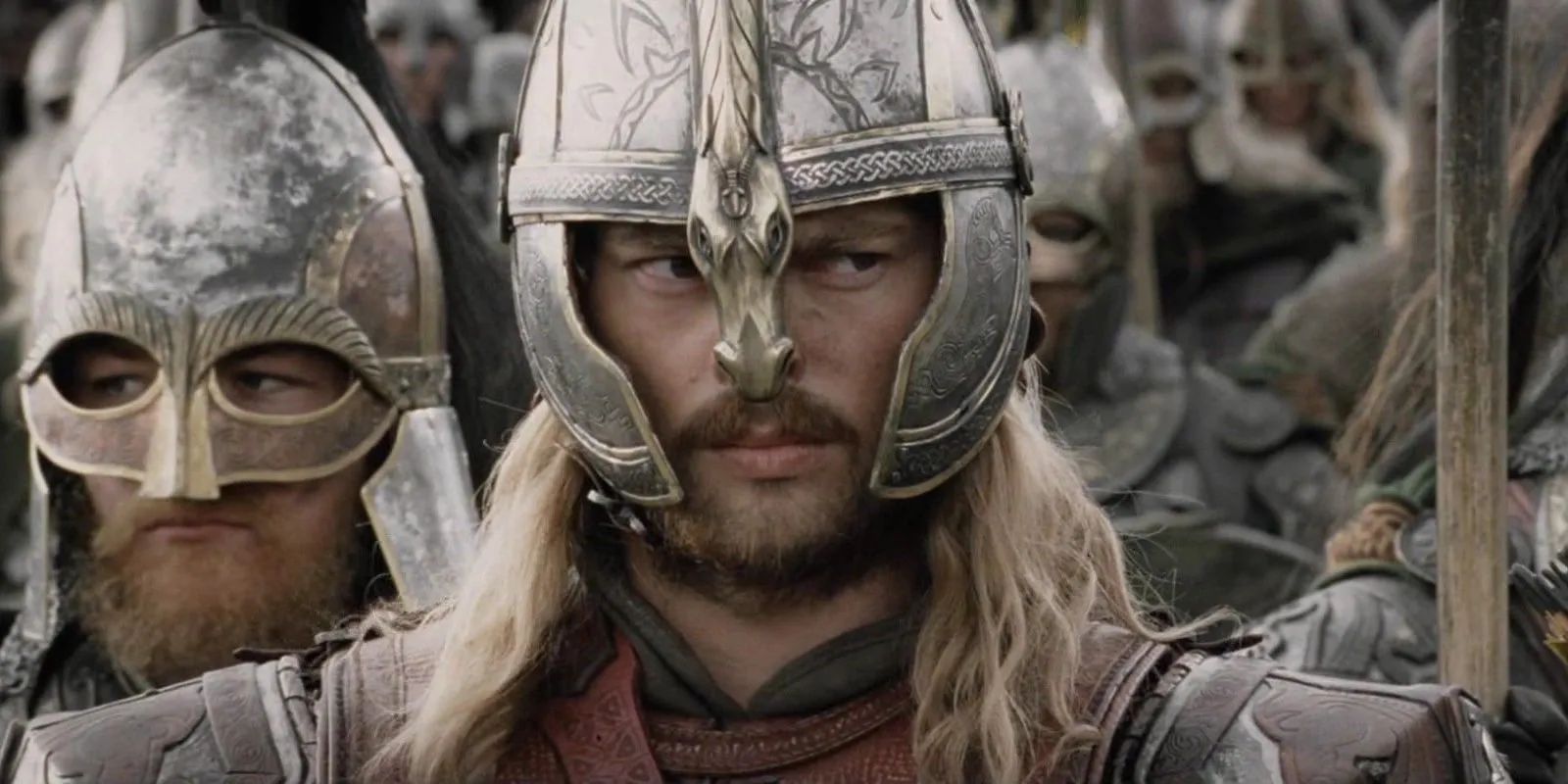
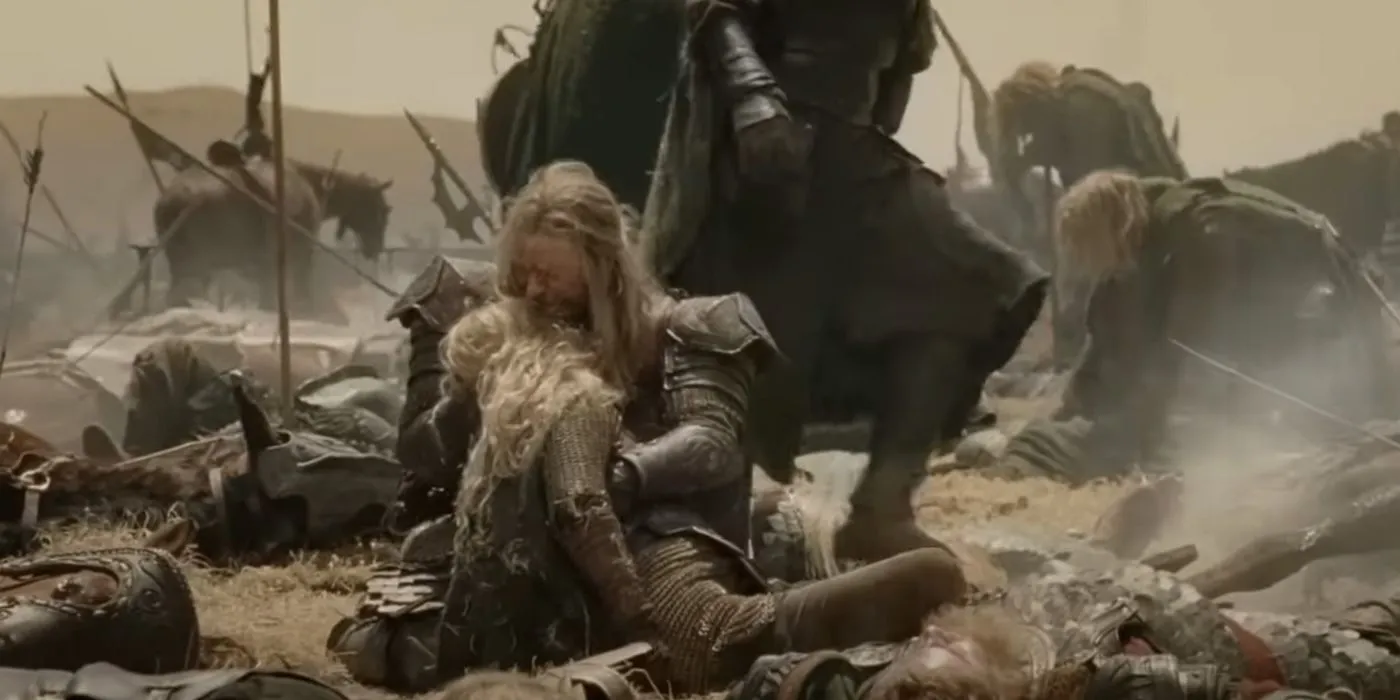
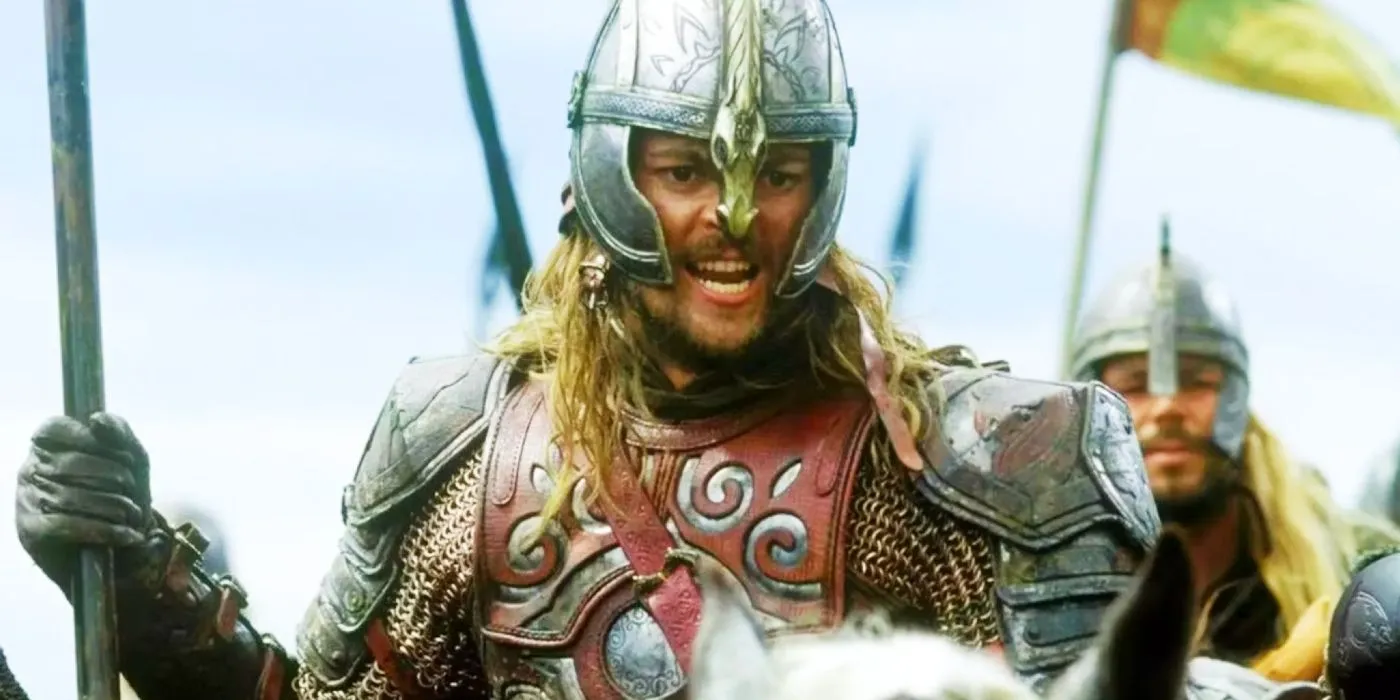
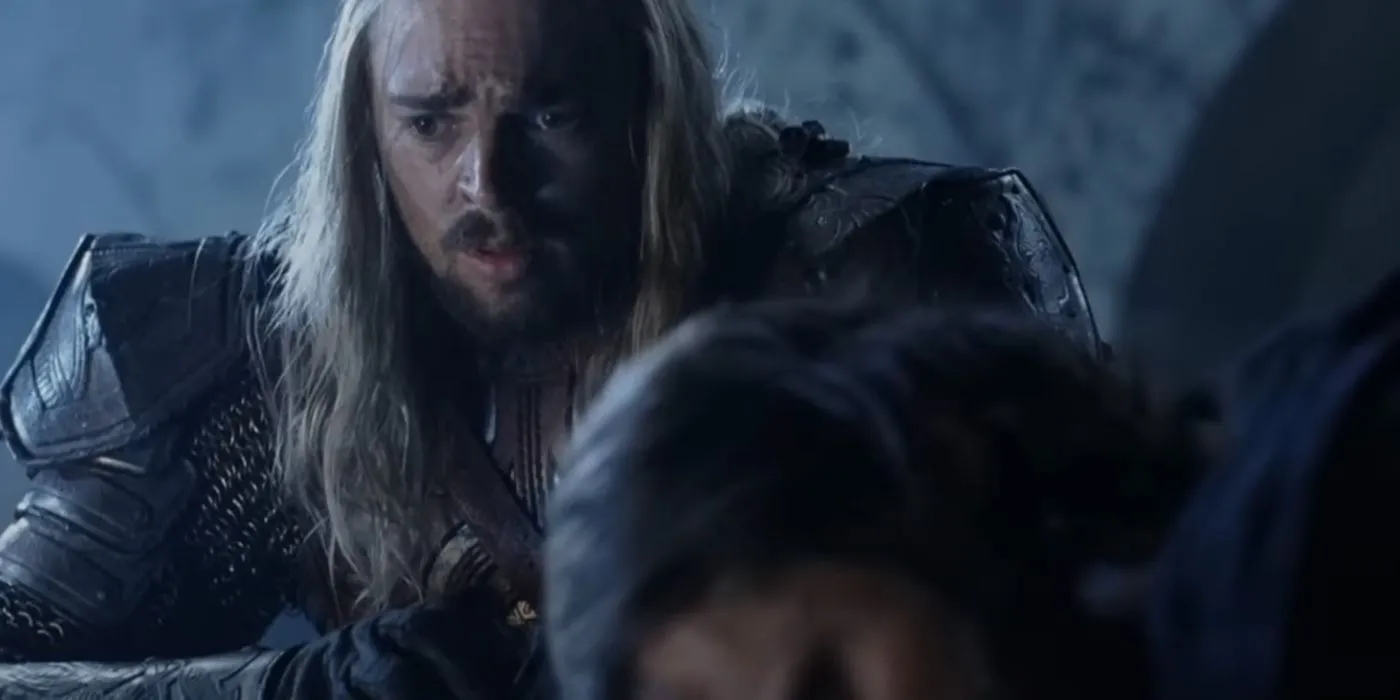
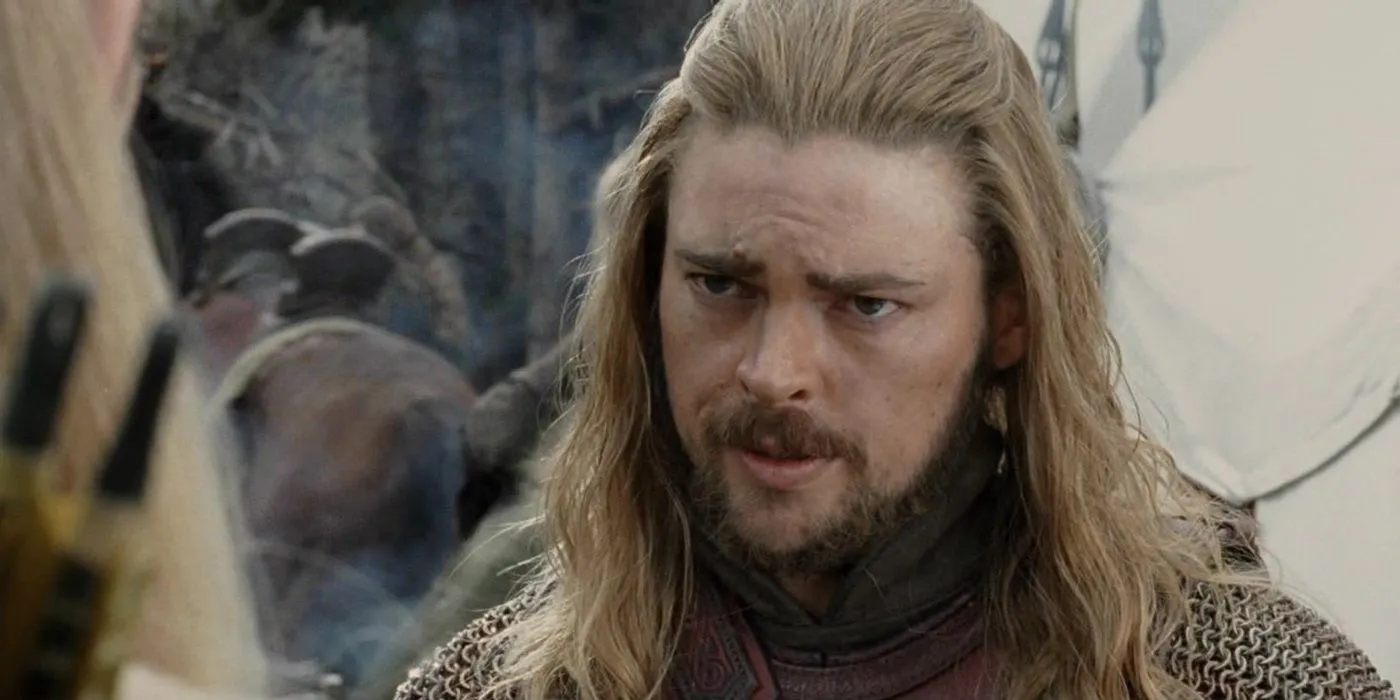
After Théoden’s reign ended with his demise, Éomer ascended the throne as a pivotal figure in securing Rohan’s legacy. He played crucial roles during the War of the Ring, lifting the siege of Helm’s Deep and battling in significant confrontations that united Rohan and Gondor under his kingship.
1 Elfwine
Ruled From FA 63 Onwards
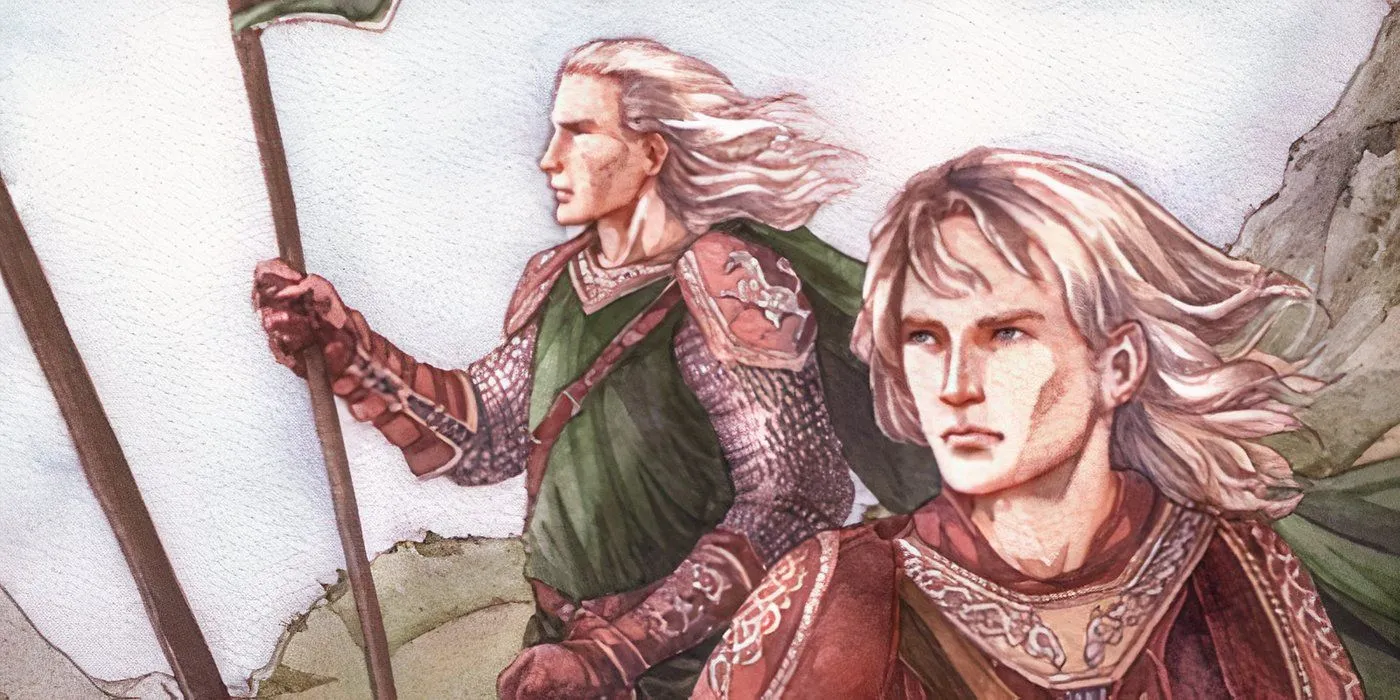
Elfwine, son of Éomer, continued the royal legacy by fostering a thriving alliance with Gondor. His reign remains less documented, yet he is recognized as the 19th king of Rohan, emphasizing the enduring importance of this kingdom in the grand narrative of The Lord of the Rings.




Leave a Reply